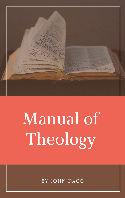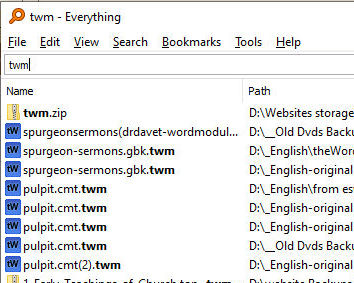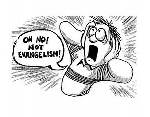NPNF1-02. St. Augustin’s City of God and Christian Doctrine
NPNF1-02. St. Augustine’s City of God and Christian Doctrine
by Philip Schaff
Summary
This (888 page) pdf is Augustine’s work on the City of God which explains his views of God’s people versus the pagan world, mixing his views of predestination and election into this.
From Wikipedia.org
The City of God, is a book of Christian philosophy written in Latin by Augustine of Hippo in the early 5th century AD. The book was in response to allegations that Christianity brought about the decline of Rome and is considered one of Augustine’s most important works, standing alongside The Confessions, The Enchiridion, On Christian Doctrine and On the Trinity. As a work of one of the most influential Church Fathers, The City of God is a cornerstone of Western thought, expounding on many profound questions of theology, such as the suffering of the righteous, the existence of evil, the conflict between free will and divine omniscience, and the doctrine of original sin.
Excerpt from Contents
Table of Contents
About This Book. . . . . . . . . . . . . . . . . . . . . . . . . . . . . . . . . . . . . . p. ii
Title Page. . . . . . . . . . . . . . . . . . . . . . . . . . . . . . . . . . . . . . . . . . p. 1
Table of Contents. . . . . . . . . . . . . . . . . . . . . . . . . . . . . . . . . . . . . p. 2
Editor’s Preface. . . . . . . . . . . . . . . . . . . . . . . . . . . . . . . . . . . . . . p. 3
City of God. . . . . . . . . . . . . . . . . . . . . . . . . . . . . . . . . . . . . . . . . p. 6
Translator’s Preface. . . . . . . . . . . . . . . . . . . . . . . . . . . . . . . . . . . p. 6
p. 12
Augustin censures the pagans, who attributed the calamities of the world,
and especially the recent sack of Rome by the Goths, to the Christian
religion, and its prohibition of the worship of the gods.. . . . . . . . . . . . .
Preface, Explaining His Design in Undertaking This Work.. . . . . . . . . p. 12
p. 13
Of the Adversaries of the Name of Christ, Whom the Barbarians for
Christ’s Sake Spared When They Stormed the City.. . . . . . . . . . . . .
p. 14
That It is Quite Contrary to the Usage of War, that the Victors Should
Spare the Vanquished for the Sake of Their Gods.. . . . . . . . . . . . . .
p. 15
That the Romans Did Not Show Their Usual Sagacity When They Trusted
that They Would Be Benefited by the Gods Who Had Been Unable to
Defend Troy.. . . . . . . . . . . . . . . . . . . . . . . . . . . . . . . . . . . . . .
p. 16
Of the Asylum of Juno in Troy, Which Saved No One from the Greeks;
And of the Churches of the Apostles, Which Protected from the Barbarians
All Who Fled to Them.. . . . . . . . . . . . . . . . . . . . . . . . . . . . . . . .
p. 17
Cæsar’s Statement Regarding the Universal Custom of an Enemy When
Sacking a City.. . . . . . . . . . . . . . . . . . . . . . . . . . . . . . . . . . . . .
p. 18
That Not Even the Romans, When They Took Cities, Spared the
Conquered in Their Temples.. . . . . . . . . . . . . . . . . . . . . . . . . . .
p. 19
That the Cruelties Which Occurred in the Sack of Rome Were in
Accordance with the Custom of War, Whereas the Acts of Clemency
Resulted from the Influence of Christ’s Name.. . . . . . . . . . . . . . . . .
p. 19
Of the Advantages and Disadvantages Which Often Indiscriminately
Accrue to Good and Wicked Men.. . . . . . . . . . . . . . . . . . . . . . . .
p. 20
Of the Reasons for Administering Correction to Bad and Good
Together.. . . . . . . . . . . . . . . . . . . . . . . . . . . . . . . . . . . . . . . .
That the Saints Lose Nothing in Losing Temporal Goods.. . . . . . . . . p. 22
p. 24
Of the End of This Life, Whether It is Material that It Be Long
Delayed.. . . . . . . . . . . . . . . . . . . . . . . . . . . . . . . . . . . . . . . . .
iii
NPNF1-02. St. Augustin’s City of God and Christian Doctrine Philip Schaff
p. 25
Of the Burial of the Dead: that the Denial of It to Christians Does Them
No Injury.. . . . . . . . . . . . . . . . . . . . . . . . . . . . . . . . . . . . . . . .
Reasons for Burying the Bodies of the Saints.. . . . . . . . . . . . . . . . . p. 26
p. 27
Of the Captivity of the Saints, and that Divine Consolation Never Failed
Them Therein.. . . . . . . . . . . . . . . . . . . . . . . . . . . . . . . . . . . . .
p. 27
Of Regulus, in Whom We Have an Example of the Voluntary Endurance
of Captivity for the Sake of Religion; Which Yet Did Not Profit Him, Though
He Was a Worshipper of the Gods.. . . . . . . . . . . . . . . . . . . . . . . .
p. 29
Of the Violation of the Consecrated and Other Christian Virgins, to Which
They Were Subjected in Captivity and to Which Their Own Will Gave No
Consent; And Whether This Contaminated Their Souls.. . . . . . . . . .
Of Suicide Committed Through Fear of Punishment or Dishonor.. . . . . p. 29
p. 30
Of the Violence Which May Be Done to the Body by Another’s Lust, While
the Mind Remains Inviolate.. . . . . . . . . . . . . . . . . . . . . . . . . . . .
p. 31
Of Lucretia, Who Put an End to Her Life Because of the Outrage Done
Her.. . . . . . . . . . . . . . . . . . . . . . . . . . . . . . . . . . . . . . . . . . . .
p. 32
That Christians Have No Authority for Committing Suicide in Any
Circumstances Whatever.. . . . . . . . . . . . . . . . . . . . . . . . . . . . . .
p. 33
Of the Cases in Which We May Put Men to Death Without Incurring the
Guilt of Murder.. . . . . . . . . . . . . . . . . . . . . . . . . . . . . . . . . . . . .
That Suicide Can Never Be Prompted by Magnanimity.. . . . . . . . . . p. 34
p. 35
What We are to Think of the Example of Cato, Who Slew Himself Because
Unable to Endure Cæsar’s Victory.. . . . . . . . . . . . . . . . . . . . . . . .
p. 35
That in that Virtue in Which Regulus Excels Cato, Christians are
Pre-Eminently Distinguished.. . . . . . . . . . . . . . . . . . . . . . . . . . . .
That We Should Not Endeavor By Sin to Obviate Sin.. . . . . . . . . . . . p. 36
p. 37
That in Certain Peculiar Cases the Examples of the Saints are Not to Be
Followed.. . . . . . . . . . . . . . . . . . . . . . . . . . . . . . . . . . . . . . . .
Whether Voluntary Death Should Be Sought in Order to Avoid Sin.. . . . p. 37
p. 38
By What Judgment of God the Enemy Was Permitted to Indulge His Lust
on the Bodies of Continent Christians.. . . . . . . . . . . . . . . . . . . . . .
p. 40
What the Servants of Christ Should Say in Reply to the Unbelievers Who
Cast in Their Teeth that Christ Did Not Rescue Them from the Fury of
Their Enemies.. . . . . . . . . . . . . . . . . . . . . . . . . . . . . . . . . . . . .
p. 40
That Those Who Complain of Christianity Really Desire to Live Without
Restraint in Shameful Luxury.. . . . . . . . . . . . . . . . . . . . . . . . . . .
p. 41
By What Steps the Passion for Governing Increased Among the
Romans.. . . . . . . . . . . . . . . . . . . . . . . . . . . . . . . . . . . . . . . . .
Of the Establishment of Scenic Entertainments.. . . . . . . . . . . . . . . p. 41
iv
NPNF1-02. St. Augustin’s City of God and Christian Doctrine Philip Schaff
p. 42
That the Overthrow of Rome Has Not Corrected the Vices of the
Romans.. . . . . . . . . . . . . . . . . . . . . . . . . . . . . . . . . . . . . . . . .
Of God’s Clemency in Moderating the Ruin of the City.. . . . . . . . . . . p. 43
p. 43
Of the Sons of the Church Who are Hidden Among the Wicked, and of
False Christians Within the Church.. . . . . . . . . . . . . . . . . . . . . . .
What Subjects are to Be Handled in the Following Discourse.. . . . . . p. 43
p. 44
A review of the calamities suffered by the Romans before the time of Christ,
showing that their gods had plunged them into corruption and vice.. . . . .
p. 44
Of the Limits Which Must Be Put to the Necessity of Replying to an
Adversary.. . . . . . . . . . . . . . . . . . . . . . . . . . . . . . . . . . . . . . . .
Recapitulation of the Contents of the First Book.. . . . . . . . . . . . . . . p. 45
p. 46
That We Need Only to Read History in Order to See What Calamities the
Romans Suffered Before the Religion of Christ Began to Compete with
the Worship of the Gods.. . . . . . . . . . . . . . . . . . . . . . . . . . . . . .
p. 46
That the Worshippers of the Gods Never Received from Them Any
Healthy Moral Precepts, and that in Celebrating Their Worship All Sorts
of Impurities Were Practiced.. . . . . . . . . . . . . . . . . . . . . . . . . . . .
Of the Obscenities Practiced in Honor of the Mother of the Gods.. . . . . p. 47
That the Gods of the Pagans Never Inculcated Holiness of Life.. . . . . p. 48
p. 49
That the Suggestions of Philosophers are Precluded from Having Any
Moral Effect, Because They Have Not the Authority Which Belongs to
Divine Instruction, and Because Man’s Natural Bias to Evil Induces Him
Rather to Follow the Examples of the Gods Than to Obey the Precepts
of Men.. . . . . . . . . . . . . . . . . . . . . . . . . . . . . . . . . . . . . . . . . .
p. 50
That the Theatrical Exhibitions Publishing the Shameful Actions of the
Gods, Propitiated Rather Than Offended Them.. . . . . . . . . . . . . . .
p. 51
That the Poetical License Which the Greeks, in Obedience to Their Gods,
Allowed, Was Restrained by the Ancient Romans.. . . . . . . . . . . . . .
p. 51
That the Devils, in Suffering Either False or True Crimes to Be Laid to
Their Charge, Meant to Do Men a Mischief.. . . . . . . . . . . . . . . . . .
p. 52
That the Greeks Admitted Players to Offices of State, on the Ground that
Men Who Pleased the Gods Should Not Be Contemptuously Treated by
Their Fellows.. . . . . . . . . . . . . . . . . . . . . . . . . . . . . . . . . . . . . .
p. 53
That the Romans, by Refusing to the Poets the Same License in Respect
of Men Which They Allowed Them in the Case of the Gods, Showed a
More Delicate Sensitiveness Regarding Themselves than Regarding the
Gods.. . . . . . . . . . . . . . . . . . . . . . . . . . . . . . . . . . . . . . . . . . .
p. 54
That the Romans Should Have Understood that Gods Who Desired to
Be Worshipped in Licentious Entertainments Were Unworthy of Divine
Honor.. . . . . . . . . . . . . . . . . . . . . . . . . . . . . . . . . . . . . . . . . .




 Helpful Windows User Tip for "Searching Everything" on your PC.
Helpful Windows User Tip for "Searching Everything" on your PC.
